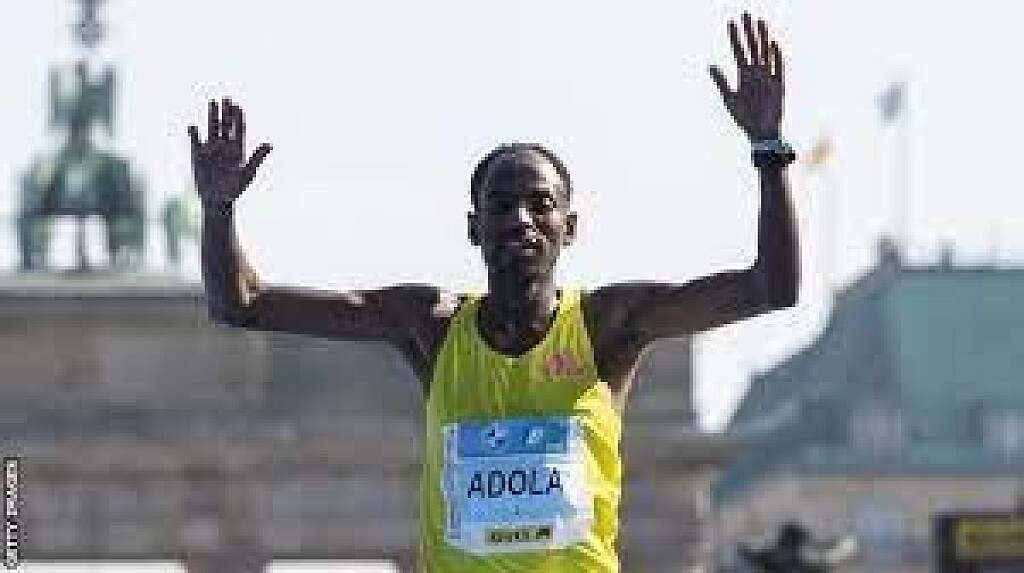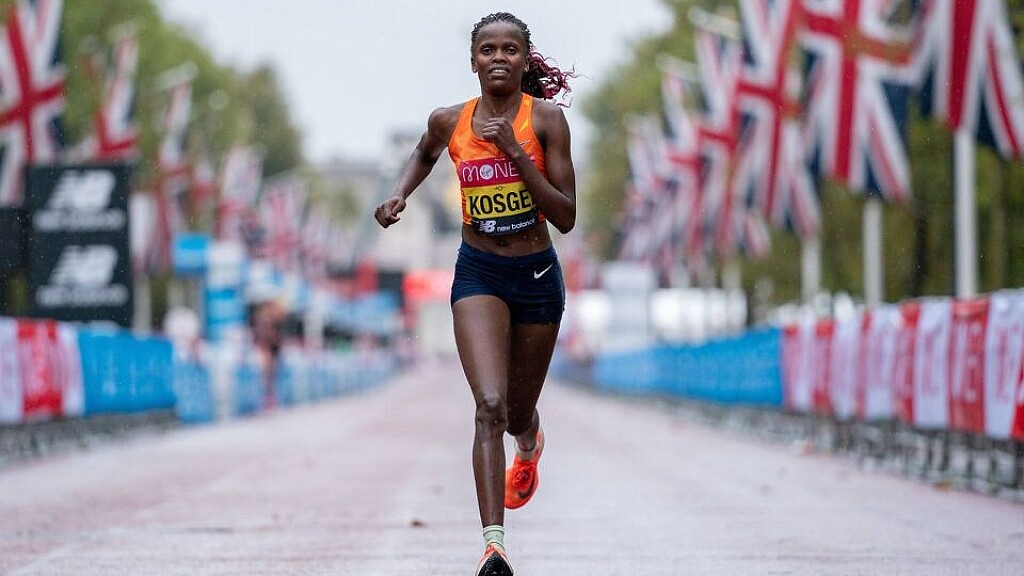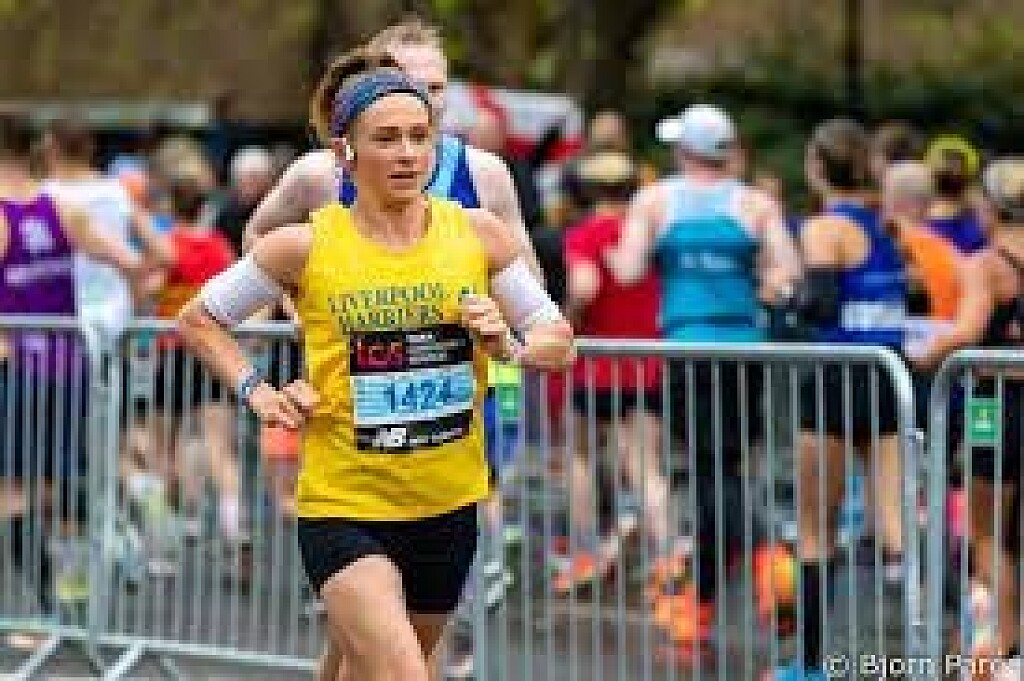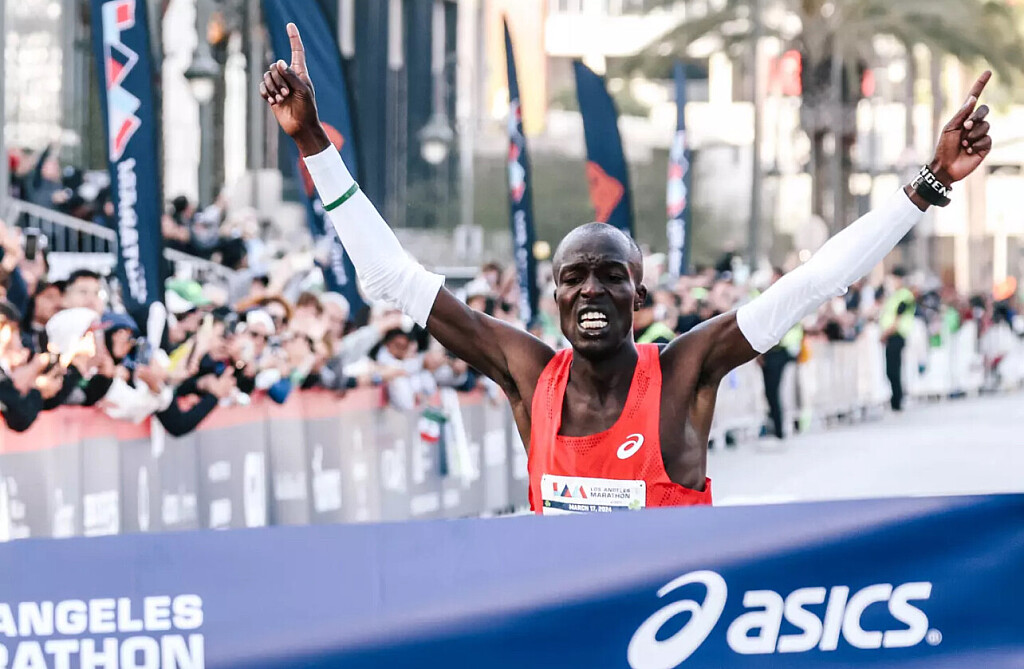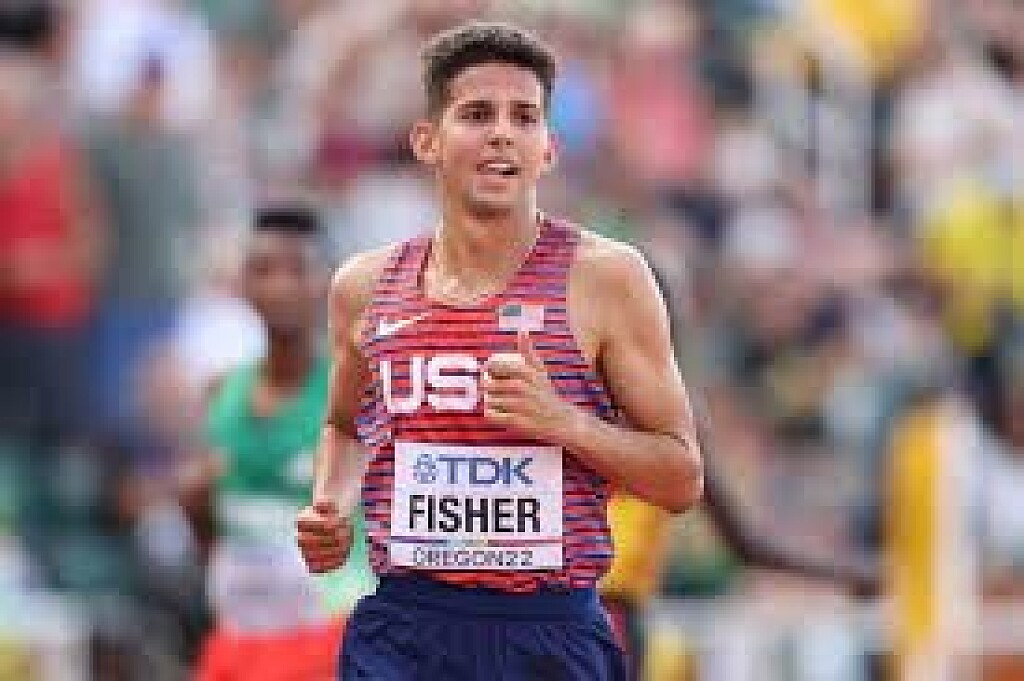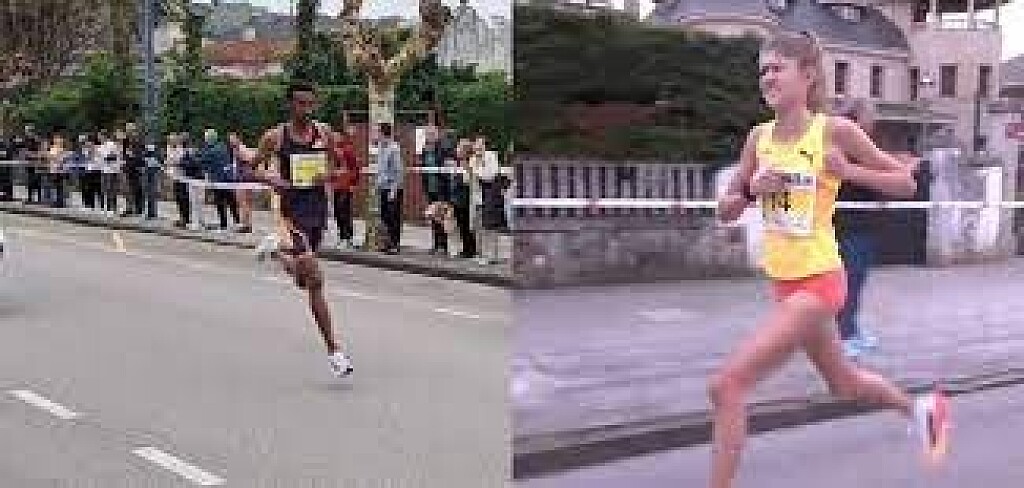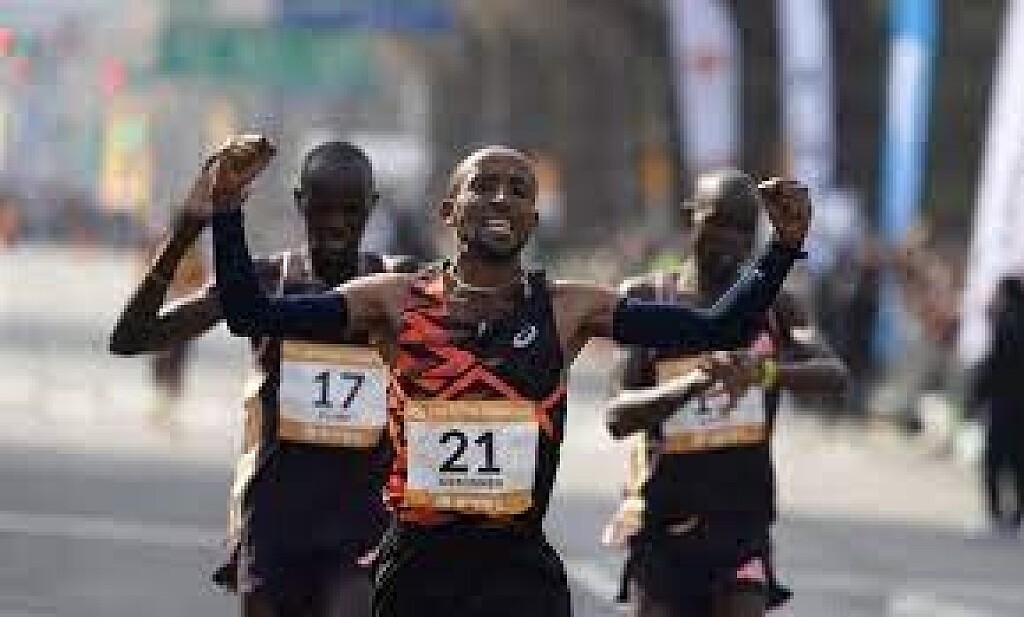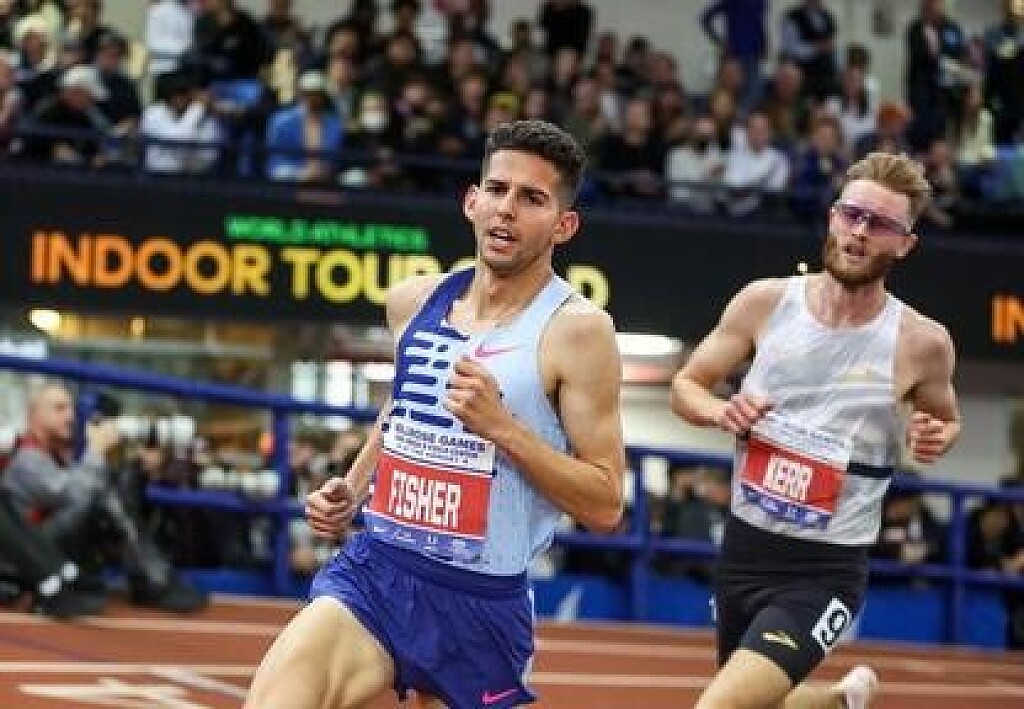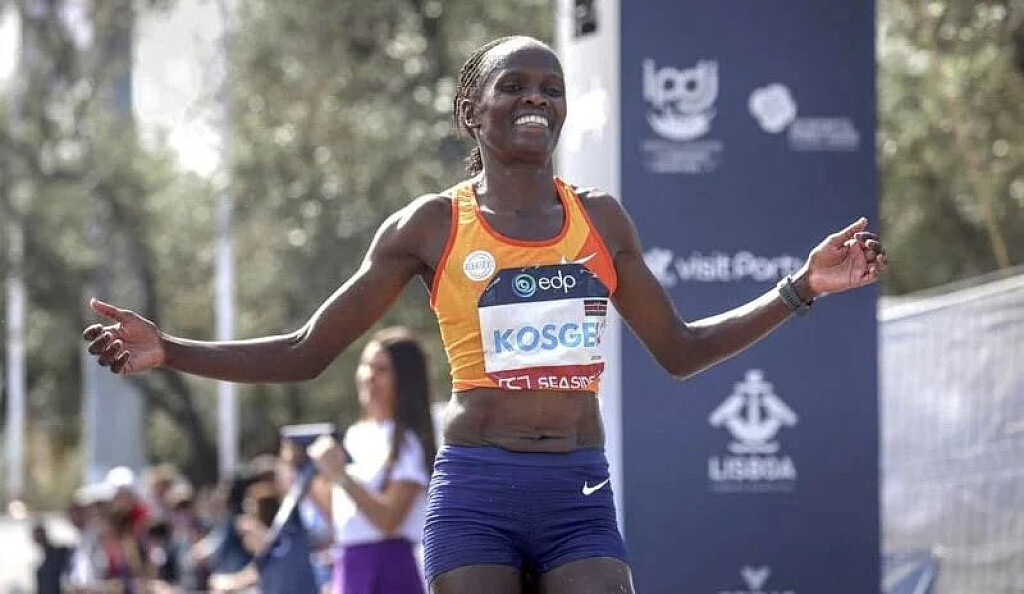Running News Daily
Top Ten Stories of the Week
3/23/2024
These are the top ten stories based on views over the last week.
Competitive fields look to make a statement in Seoul
Ethiopia’s Guye Adola and Bahrain’s Desi Mokonin are among the athletes who will be looking to make a mark when they compete in the Seoul Marathon, this year’s sixth World Athletics Platinum Label road race, on Sunday (17).
While Adola competes in Korea for the first time, Mokonin has the benefit of race experience, as she returns to an event that she won in 2019.
Adola has the fastest PB among the entries, thanks to the 2:03:46 he ran to finish second when making his marathon debut in Berlin in 2017. The 2014 world half marathon bronze medallist returned to win in Berlin in 2021, running 2:05:45 for the third-fastest time of his career so far.
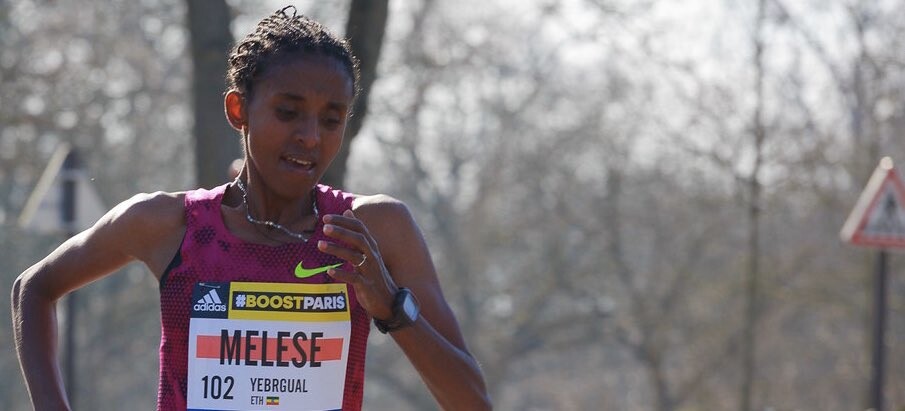
He is back in marathon action for the first time since October, when he placed third in Frankfurt after finishing runner-up in Paris in April.
There are a number of athletes who will want to challenge him in Seoul, where the men’s field features another six sub-2:06 athletes. The course record stands at 2:04:43, achieved by Mosinet Geremew in 2022.
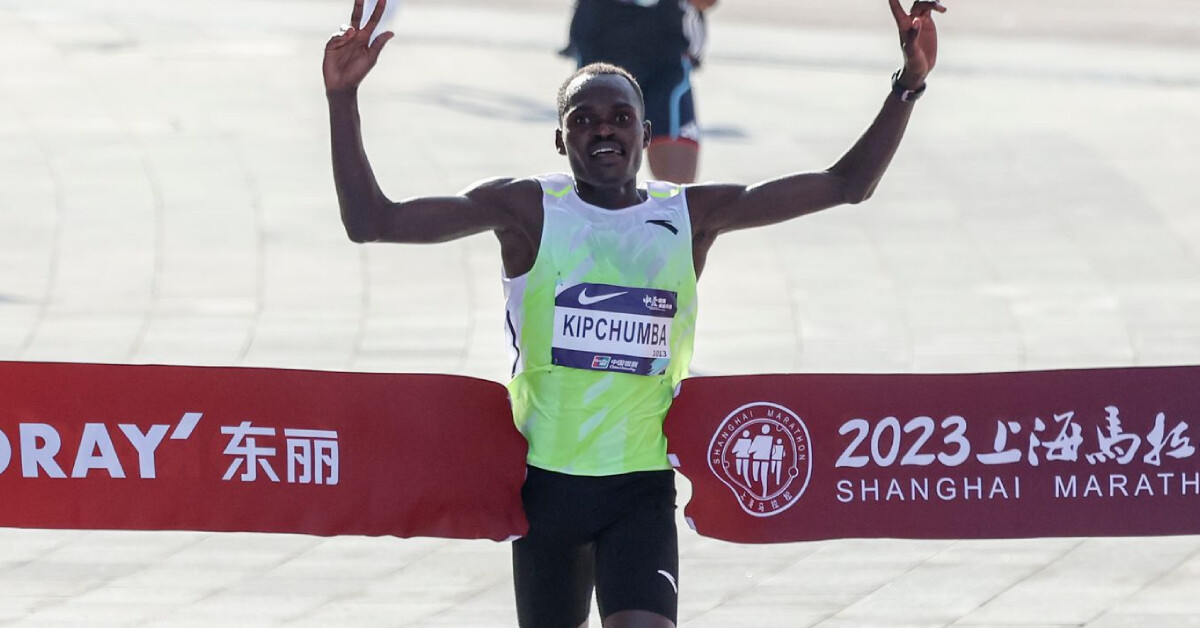
Kenya’s Philimon Kiptoo Kipchumba has won each of the four marathons he has completed so far, most recently winning the Shanghai Marathon in November in a PB of 2:05:35, but he withdrew when defending his Xiamen Marathon title in January.
His compatriot Solomon Kirwa Yego finished third in Shanghai in a PB of 2:05:42 and then placed eighth in Xiamen, while Joel Kemboi Kimurer ran his PB of 2:05:19 in Milan in 2021 and Laban Kipngetich Korir clocked his best of 2:05:41 in Amsterdam in 2022.
Ethiopia’s Derseh Kindie will be looking to build on the PB of 2:05:51 he set in Valencia in December and he’ll be joined on the start line by his compatriots Gebru Redahgne, who finished second in the 2022 Barcelona marathon in 2:05:58, and world half marathon fourth-place finisher Jemal Yimer.
China’s Feng Peiyou and Olonbayar Jamsran of Mongolia will be among those seeking Olympic qualification.
Ethiopia’s Yebrgual Melese is the quickest in the women’s field when it comes to PBs with the 2:19:36 she ran in Dubai in 2018, but the 2015 Chicago Marathon runner up’s last recorded result was a fifth-place finish in the 2020 Xiamen Marathon.
She’s the sole sub-2:20 runner in the women’s race but she will be joined by four others who have dipped under 2:22.
Those include Mokonin, who won the 2019 Seoul Marathon in 2:23:44 and clocked her PB of 2:20:47 in Doha just over a year ago. She ended 2023 with a 2:22:29 performance to finish seventh in Valencia.
Kenya’s Celestine Chepchirchir opens her 2024 campaign after having raced four marathons last year, topped by the 2:20:46 she ran to finish fourth in Valencia. Like Mokonin, she has previously raced in Seoul and it is where she recorded her PB of 2:20:10 set in 2022, when she finished fourth.
She lines up alongside her compatriot Janet Ruguru, who set a PB of 2:23:00 to finish second in Beijing in October and placed third in the Daegu International Marathon in the April.
Sisay Meseret Gola followed her 2:20:50 PB performance in Seville in 2022 with two 2:22 marathons in 2023 – in Osaka and Amsterdam. She withdrew from this year’s Osaka Women's Marathon in January but now returns to action in a field that also features her Ethiopian compatriot Fikrte Wereta, who ended 2023 with a win and a PB in Shenzhen, clocking 2:22:07.
Former Mongolian record-holder Munkhzaya Bayartsogt will be among those hoping to put themselves in the running for a place at the Paris Olympics.
The course record of 2:18:04 was set by Romania’s Joan Chelimo Melly in 2022.
Leading entries
Women
Yebrgual Melese (ETH) 2:19:36
Celestine Chepchirchir (KEN) 2:20:10
Desi Mokonin (BRN) 2:20:47
Sisay Meseret Gola (ETH) 2:20:50
Visiline Jepkesho (KEN) 2:21:37
Fikrte Wereta (ETH) 2:22:07
Sintayehu Tilahun (ETH) 2:22:19
Janet Ruguru (KEN) 2:23:00
Margaret Agai (KEN) 2:23:28
Sifan Melaku (ETH) 2:23:49
Munkhzaya Bayartsogt (MGL) 2:28:03
Marina Khmelevskaya (UZB) 2:29:28
Ayano Ikeuchi (JPN) 2:33:29
Men
Guye Adola (ETH) 2:03:46
Joel Kemboi Kimurer (KEN) 2:05:19
Philimon Kiptoo Kipchumba (KEN) 2:05:35
Laban Kipngetich Korir (KEN) 2:05:41
Solomon Kirwa Yego (KEN) 2:05:42
Derseh Kindie (ETH) 2:05:51
Gebru Redahgne (ETH) 2:05:58
Mark Kiptoo (KEN) 2:06:00
Felix Kandie (KEN) 2:06:03
Mike Kiptum Boit (KEN) 2:06:08
Ashenafi Moges Weldegiorgis (ETH) 2:06:12
Edwin Kiptoo (KEN) 2:06:52
Kibrom Desta Habtu (ETH) 2:07:05
Balew Yihunie Derseh (ETH) 2:07:12
Timothy Kipkorir (KEN) 2:07:53
Rory Linkletter (CAN) 2:08:01
Feng Peiyou (CHN) 2:08:07
Rhonzas Lokitam Kilimo (KEN) 2:08:08
Olonbayar Jamsran (MGL) 2:08:58
Huang Yongzheng (CHN) 2:10:49
Gantulga Dambadarjaa (MGL) 2:11:18
Jemal Yimer (ETH) 2:11:31
Evans Kipchumba (KEN) debut
(03/16/24) Views: 146World Athletics
Brigid Kosgei sets lofty ambitions at Lisbon Half Marathon as big bonus awaits
Kenya’s Brigid Kosgei is keen to make history at the Lisbon Half Marathon on Sunday as she seeks to use the race to tune up for next month’s London Marathon.
Kenya’s Brigid Kosgei is keen to break her half marathon personal best during the Lisbon Half Marathon on Sunday.
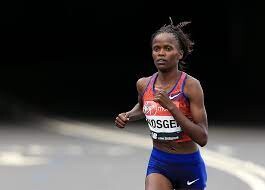
The former marathon world record holder is using the Lisbon Half Marathon to gauge her level of preparedness for the London Marathon set to take place on April 21 and she feels she can lower her half marathon personal best of 1:04:49.
"I'm really happy to be here again. I wanted to run this race because I want to test my speed for London Marathon in April,” Kosgei said on Friday.
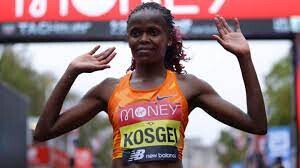
“I come here to see how my body respond. I'm feeling good, I'm happy, did a good preparation. The course is very fast and I hope to have a good race on Sunday. If the weather is good, I will try to break my personal best in half marathon.”
The 30-year-old is no stranger to the Portuguese capital having won the 2016 Lisbon Marathon but she will come up against a stellar field on Sunday, in want has been termed the fastest half marathon in the world.
Seeking to upstage her is compatriot Vivian Cheruiyot, the 2018 London Marathon champion, whose last race was the Valencia Marathon in 2019 when she finished fourth.
There are also Kenyans Betty Chepkemoi, Pauline Esikom and Vivian Melly, Ethiopia’s Bosena Mulatie, fourth at the 2023 Istanbul Half Marathon and Senayet Getachew, the 2023 Junior World Cross-Country champion, who will be keen to upstage her.
The men’s field has attracted 10 athletes with the best marks under one hour. Abraham Kiptum will be returning and he is the biggest highlight, with a personal best of 59.09.
He will face a stern test from Ethiopians Solomon Berihu (59.17) and Dinkalem Ayele (59.30), but also compatriots Brian Kwemoi and Bravin Kipkogei Kiptoo (both with 59.37).
American Leonard Korir, third in the last month's US Olympic Marathon Trials, will also be in the race.
Korir achieved the needed spot in the podium, but not the time to guarantee the place in Paris. That's why he chose Lisbon to try to run a fast time, and maybe break the American record (59:43).
"I heard so many good things about the race, I heard that it's super fast. There were some guys that run fast here, like Jacob Kiplimo. I wanted to run something faster, and I told myself 'let me try to go to Lisbon',” said Korir.
“I heard the organisation is very good, the course is very nice. I just want to see if I can run a quick time, to see how my body feels before running a marathon in the near future,” added the 37-year-old American.
Lisbon Half Marathon oragnisers have set aside a €150,000 (Ksh22,044,775) bonus for new world records with the times to beat being 57:31 set by Ugandan Jacob Kiplimo, at this same race in 2021, and 1:02:54 by Ethiopian Letesenbet Gidey in Valencia.
(03/16/24) Views: 145Joel Omotto
London Marathon: Rachel Hodgkinson nervous ahead of first elite start
Distance runner Rachel Hodgkinson says being able to compete in next month's London Marathon as an elite athlete has made her nervous.
The 31-year-old was the second fastest British woman in last year's London Marathon having not started as part of the elite athlete's cohort.
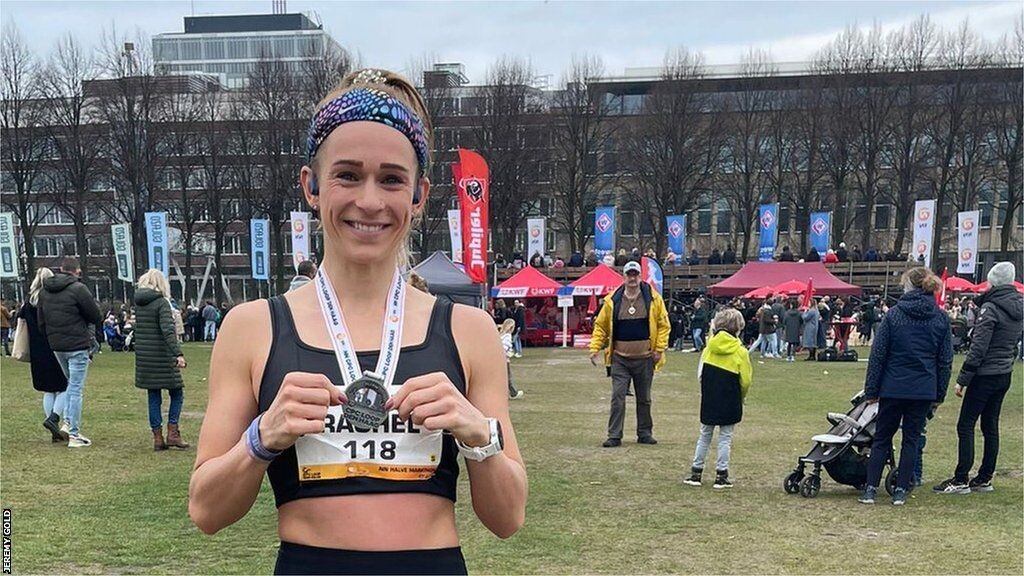
She has since won gold at the Tokyo Marathon and finished fifth in the IAU 50km World Championship.
"Just getting there is an achievement," she told BBC Radio Merseyside.
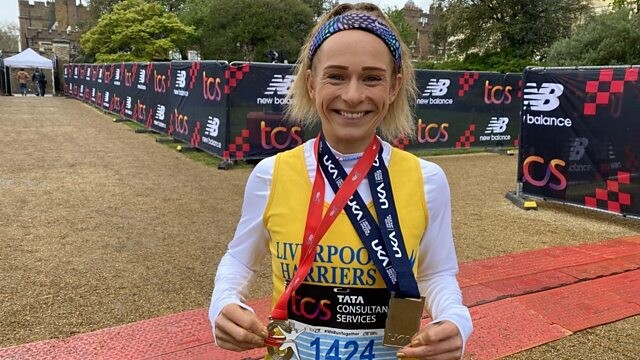
"I'm excited and also quite nervous.
"Last year I came second for the British women, so I already knew at that point that I probably wouldn't be able to run with the masses and with the men again. So I knew I'd be making that step up into the women's only race.
"It was a shock last year when I came in second because I didn't start with the elite women. I didn't know I was in second, I only found out when I crossed the line that some of the elite women had dropped out."
With Olympic qualification for this summer's Games out of reach and question marks over the future of the Commonwealth Games, Hodgkinson's competitive aims have been pushed to the distant future.
"I'm not going to make the Olympics this year but they come around every four years so why not go again and have a shot?" she added.
"The Commonwealth Games is in question at the minute and may or may not happen. I'd like to represent England as I haven't done that, but that's generally some shorter distance stuff and speed is not necessarily my strength. I'm an endurance runner but we'll see.
"I could easily go down the ultra running line and step up to 50km or 100-milers."
(03/15/24) Views: 133Should marathoners do sprint work?
There are many misconceptions about sprinting, and one of them is the belief that marathoners shouldn't include sprinting in their training.
If you’re a marathoner, incorporating fast-twitch sprint work into your training regimen might seem counterintuitive. However, contrary to popular belief, adding just five to 10 reps of 50-metre sprints to the end of your runs once or twice a week can significantly enhance your running efficiency and strength.
Integrating a small amount of sprint work can improve your neuromuscular co-ordination, leading to enhanced running mechanics and increased running economy. This economy that we speak of is especially beneficial during the later stages of a race, when fatigue starts to kick in and your form starts to deteriorate. Sprint work targets fast-twitch muscle fibres, helping bolster overall leg strength and power per stride, which will translate to your ability to maintain faster paces.

Adding this little training hack into your routine could be the easiest path to becoming a faster distance runner. However, adding sprint training to your marathon build can come with risks, as it places considerable stress on muscles, tendons and joints. So without proper preparation or execution the risk of injury increases. Therefore, implementing a thorough warm-up and gradually progressing to the speed you’re trying to hit on your first few reps is imperative to mitigate these risks.
Despite the name, sprints don’t necessarily entail going all-out. Many runners, including sprinters, rarely reach race speeds during practice sessions, due to the taxing nature of maximal effort, which can elevate the risk of injury. Instead, sprint training typically occurs at around 60-80 per cent of your maximum speed.

If you’re looking for an alternative to sprints, short hills can also do the trick. These 30-second hill inclines can serve as an excellent way to add more speed and efficiency into your marathon preparation while enhancing strength and power.
Just because we are telling you sprint training is helpful, remember to not stray too far from the norm. It’s important to find a balance between sprint work and other essential components of marathon training, such as long runs, tempo runs and recovery mileage. Sprint sessions should not replace these foundational elements, but rather serve as a training supplement component to enhance your performance.
(03/16/24) Views: 132Marley Dickinson
Dominic Ngeno, Stacy Ndiwa celebrate after winning 2024 L.A. Marathon
Upon breaking the tape on a pristine St. Patrick’s Day morning in the City of Angels, Dominic Ngeno dropped to his knees and kissed the ground in celebration of winning the 39th Los Angeles Marathon.
The 26-year-old Kenyan separated from countryman Cosmas Kiplimo with a little more than three miles to go on the 26.2-mile route that started at Dodger Stadium and ended on the Avenue of the Stars in Century City. Ngeno prevailed by five seconds in 2:10:20 — almost three minutes faster than last year’s winner, Jemal Yimer of Ethiopia.
“I watched the race the last couple of years and my coach gave me a plan in training,” Ngeno said. “I wanted to go 2:08 but it was a little humid the last three kilometers and that reduced our speed. In my mind it was about setting the right pace.”
Ngeno clocked a personal-best 2:07:26 to place third at the Eindhoven Marathon in the Netherlands in October and was ninth in 2:11:23 at the Milan Marathon in Italy in April. Ethiopian Markos Geneti set the L.A. Marathon men’s record of 2:06:35 in 2011, but Sunday was about the Kenyans — Ngeno, Kiplimo and Stacy Ndiwa, who repeated as the women’s winner in a personal-best 2:25:28.
“Last year I didn’t know the course but this year I prepared well for the hills and the weather was better,” said the 31-year-old Ndiwa, who pulled away from runner-up Volha “Olga” Mazuronak in the last mile to win by 20 seconds and shave 5:32 off last year’s effort. Ndiwa received an additional $10,000 for winning the Marathon Chase.
“People cheered us from the start until the last minute,” she said. “At 40 kilometers I increased my pace. I was worried [Mazuronak] would catch me.”
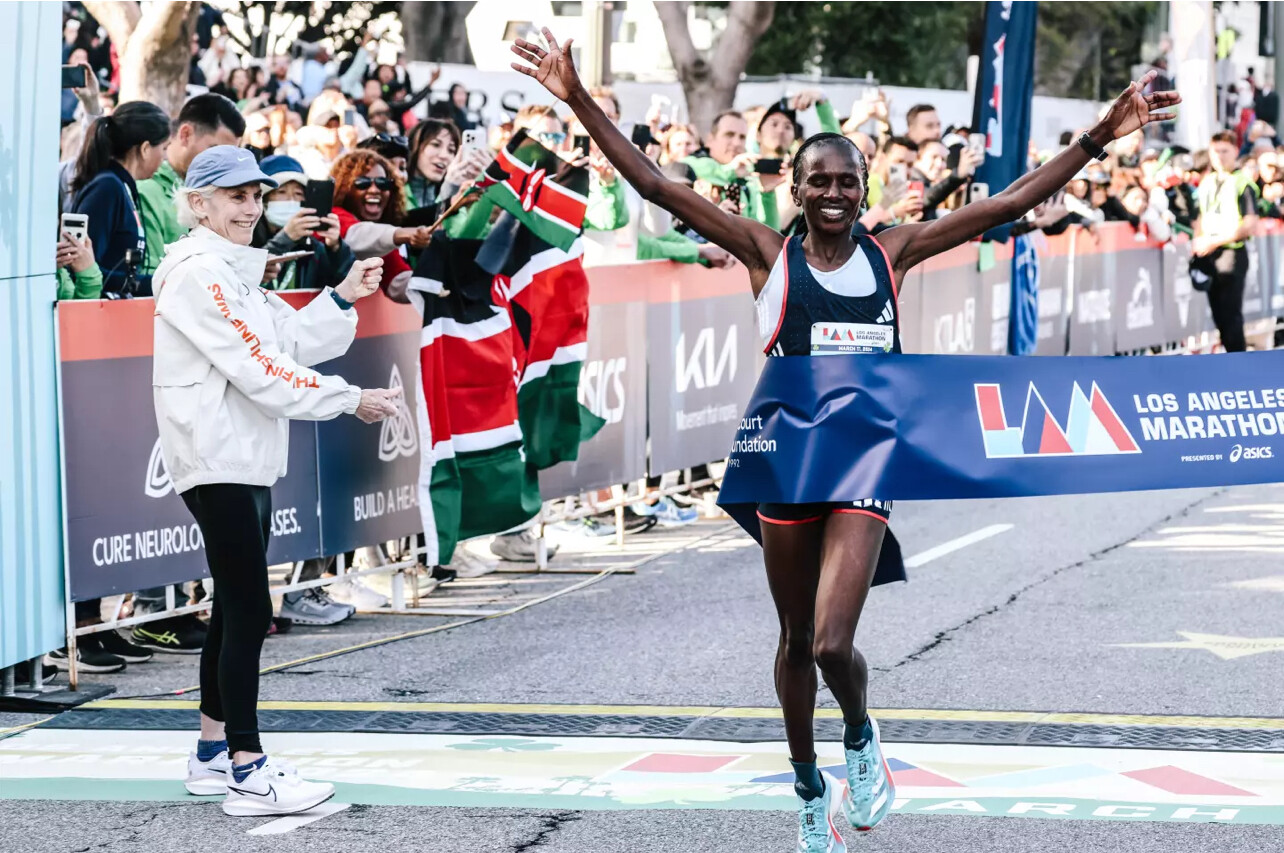
Askale Merachi of Ethiopia set the women’s record of 2:24:11 in 2019.
The elite women started on time at 6:43 a.m. and were supposed to have a 17-minute head start in the Marathon Chase, a feature unique to the L.A. Marathon in which the first runner to reach the finish line, either male or female, is awarded a $10,000 bonus. Due to a miscommunication, however, the men were sent off at 6:55, only 12 minutes behind the women, lessening the drama of the “battle of the sexes.”
In 13 previous Chase competitions the women won the race-within-a-race nine times, but their “early” start enabled Ngeno and Kiplimo to overtake the top three women in Mile 22. However, Ndiwa was still declared the winner because the men would not have caught her had they started on schedule.
“When the men passed us and I saw who they were I thought ’no problem!’ ” Ndiwa said.
“She trains not far away and we see each other on the track a lot,” Ngeno said of his fellow winner. “Last week, we wished each other the best. We’re proud to have won.”
The L.A. Marathon debuted in 1986 and a Kenyan has won the men’s race eight times and the women’s race six times since 2015.
Mazuronak, who finished fifth in the Olympics twice, was running her first marathon in three years. In September, the 34-year-old from Belarus relocated to Irvine with her son and gained membership in USA Track & Field after not being able compete as a result of her protesting election fraud in her native country.
(03/17/24) Views: 127Los Angeles Times
Gebreselama and Fisher win as records fall in San Juan Capistrano
Tsigie Gebreselama set a US all-comers' record to win the women’s 10,000m, while Grant Fisher topped a deep men’s race to triumph at The TEN, a World Athletics Continental Tour Silver event, in San Juan Capistrano, California, on Saturday (16).
Hitting the Olympic standards for Paris – 27:00.00 for men and 30:40.00 for women – was the aim for many athletes in San Juan Capistrano. A total of eight athletes managed it in the men’s race and four achieved it in the women’s.

Leading the way in that women’s race was Ethiopia’s world cross country silver medallist Gebreselama, who improved her PB to 29:48.34 to move to ninth on the world all-time list.
The 23-year-old won the Ras Al Khaimah Half Marathon in a PB of 1:05:14 three weeks ago and returned to the track to dip under 30 minutes for 10,000m for the first time, also becoming the first woman to break that time barrier on US soil.
Gebreselama, the fourth-place finisher in the World Road Running Championships half marathon in October, had been the only athlete to go with USA’s Alicia Monson from the start but when Monson struggled to maintain the pace, Gebreselama took over at the front and Monson later dropped out.
Chasing the Olympic standard in a group further back, USA’s Weini Kelati led the way and clocked a PB of 30:33.82 to finish second. She was followed by Lauren Ryan, who ran 30:35.66 to improve Benita Willis’s 20-year-old Australian record, and Britain’s Megan Keith, who ran 30:36.84 on her 10,000m debut.
Rachel Smith finished fifth in 31:04.02 and Karissa Schweizer sixth in 31:04.80.
In the men’s race, North American record-holder Fisher led one of the deepest 10,000m races in history as he sprinted into the lead in the closing stages to win in 26:52.04.
His 21-year-old US compatriot Nico Young followed him over the finish line in a US collegiate record of 26:52.72 and the next six were also under the Olympic entry standard.
Andreas Almgren ran a Swedish record of 26:52.87 to finish third, while Canada’s Mohammed Ahmed was fourth in 26:53.01, Eritrea’s Habtom Samuel was fifth in a PB of 26:53.84, Adriaan Wildschutt was sixth in a South African record of 26:55.54, USA’s Woody Kincaid was seventh in a PB of 26:57.57 and Kenya’s Edwin Kurgat was eighth in a PB of 26:57.66.
(03/17/24) Views: 125Kejelcha goes No.3 all time with 26:37 10km in Laredo
World indoor mile record-holder Yomif Kejelcha stormed to a 26:37 10km win in the northern Spanish town of Laredo on Saturday (16).
With that performance at the World Athletics Label event, the Ethiopian 26-year-old achieved the third-fastest men's 10km of all time. Only Rhonex Kipruto with his world record of 26:24 set in Valencia four years ago and Berihu Aregawi with his 26:33 run in Laredo last year have gone faster.
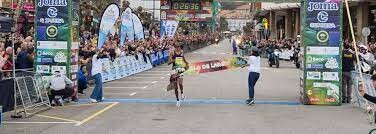
Racing under ideal weather conditions on a 15ºC windless afternoon, Kejelcha was perfectly paced by his fellow Ethiopian Addisu Yihune, himself the reigning world U20 5000m champion. They went through the opening kilometres at a steady 2:38 pace, the tempo needed to attack the world best.
Meanwhile, Uganda’s Joshua Cheptegei travelled a few metres behind in the company of his own pacemaker, his compatriot Naman Kipyeko, but the world 5000m and 10,000m record-holder began to lose ground some six minutes into the race. By the third kilometre, Kejelcha became a virtual victor as he had built a seven-second gap on the Ugandan, with 7:54 and 8:01 their respective times at that point.
Despite being well on schedule to challenge the world record, Kejelcha overtook Yihune before reaching the fourth kilometre and from then on it was a solo run by the two-time world indoor 3000m champion, who went through halfway in a promising 13:10. Cheptegei ran nine seconds in arrears in the company of Yihune.
Over the second half, Kejelcha maintained a frantic rhythm in the 2:38/2:40 per kilometre range to increase his advantage on Cheptegei.
Over the closing two kilometres, Kejelcha could not maintain the pace on his own and despite his huge effort he romped home 13 seconds shy of the coveted mark and four seconds off the Ethiopian record. As for Cheptegei, the 27-year-old finished in 26:53, his third-quickest time and 15 seconds slower than the then world record of 26:38 he set in Valencia in December 2019.
Surprisingly, the 20-year-old pacemaker Yihune completed the race in a massive lifetime best of 27:28.
“I came to Laredo to break the world record but it was not possible,” said Kejelcha. “I felt some discomfort in my hip around the eighth kilometre and could not maintain my speed.”
As for Cheptegei, the Olympic 5000m champion confirmed his main goal was to get the Olympic 10,000m standard of 27:00 and he expressed his happiness at having reached that target two weeks before he competes at the World Cross Country Championships in Belgrade.
Klosterhalfen prevails
Held alongside the men’s race, the women’s event featured Germany’s Konstanze Klosterhalfen as the favourite. The European 5000m champion dropped out during her last race, the Ras Al Khaimah Half Marathon, three weeks ago and was trying to bounce back in Laredo with the main target of getting the qualifying time for the 10,000m at the Paris Olympics (30:40).
Running in a group alongside male athletes, the 27-year-old started at a brisk pace and covered the opening kilometres at a tempo of around 3:00 per kilometre to go through halfway in 15:07, well on schedule for her target. Kenya’s Purity Gitonga travelled in second, five seconds back, and Spanish 3000m steeplechase record-holder Irene Sanchez-Escribano was third in 15:32.
Over the second half of the race all the main contenders slowed down their speed as Klosterhalfen began to falter dramatically inside the closing kilometre. That saw her lose any chance of achieving the entry standard for Paris but she still achieved a PB of 31:07.
Gitonga finished runner-up in 31:24 and Sanchez-Escribano ran a massive lifetime best of 31:35 for third.
(03/17/24) Views: 124Yimer and Wereta secure Ethiopian double in Seoul
Jemal Yimer prevailed after a sprint finish in the men’s race, while Fikrte Wereta claimed a clear women’s race win to secure an Ethiopian double at the Seoul Marathon on Sunday (17).
It was a first World Athletics Platinum Label road race win for both athletes, two-time world half marathon fourth-place finisher Yimer continuing his marathon journey with an almost three-minute PB of 2:06:08 and Wereta also running a lifetime best of 2:21:32.
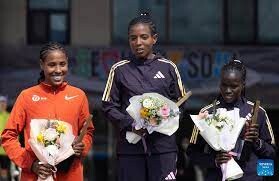
The men’s race saw a big group remain together until after 30km, when Yimer formed part of a breakaway group of seven. The 27-year-old had been happy to sit back in the pack up to that point, passing 10km in 29:43 and 20km in 59:54.
The pace remained consistent as he reached 25km in 1:14:37 and 12 athletes were still running together at the 30km mark, hit by the leaders in 1:29:35.
Yimer’s compatriot Guye Adola, the 2021 Berlin Marathon champion, had looked in control to that stage, as he and Kenya’s Mike Kiptum Boit continued to switch the lead. But Adola couldn’t maintain the pace and he was among the athletes to drop back over the next couple of kilometres.
A group of seven forged ahead and six athletes remained together as 35km was reached in 1:44:27.
Yimer still had four others for company as he hit 40km in 1:59:19 alongside his compatriot Balew Yihunie Derseh plus Boit and his Kenyan compatriots Edwin Kiptoo and Rhonzas Lokitam Kilimo.
But after doing much of the leading, Boit could only watch as Kilimo, Kiptoo and Yimer strode ahead.
Timing his kick to perfection, Yimer waited until the final corner to make his move. Glancing over his shoulder, he left Kilimo and Kiptoo behind and punched the air as he crossed the finish line.
He won in 2:06:08, with Kilimo a second behind him and Kiptoo a further second back.
Boit held on for fourth place in 2:06:20, while Derseh was fifth in 2:06:22.
In the women’s race, a nine-strong group running alongside male runners was on sub-2:20 pace for the opening kilometres but the tempo eased as the leaders reached 10km in 33:28, led by Kenya’s Celestine Chepchirchir.
Bahrain’s Desi Jisa Mokonin, looking to regain a title that she won in 2019, also took turns at the front and led as 15km was reached in 50:25 and 20km was passed in 1:07:29.
The main contenders remained together as an eight-strong group hit 30km in 1:41:05 and like in the men’s race, it was at around this stage that a significant move was made.
Jisa and Wereta were joined by Kenya’s Visiline Jepkesho and Ethiopia’s Betelihem Afenigus Yemer in a breakaway group and Wereta looked comfortable as she took her place at the front, with her challengers in single file behind her.
Wereta, Jisa and Yemer passed the 35km mark together in 1:57:42, with Jepkesho 11 seconds back at that point, and then Wereta attacked. She had built a lead of 23 seconds by 40km, passed in 2:13:54, as she was chased by Jisa (2:14:17), Yemer (2:14:43) and Jepkesho (2:15:01).
Wereta continued to stretch her lead and had an advantage of 47 seconds by the finish, which she crossed in 2:21:32.
Jisa secured the runner up spot in 2:22:19, while Jepkesho passed Yemer in the closing stages to claim third place – 2:22:52 to 2:23:20. Ethiopia’s Yebrgual Melese was fifth in 2:23:43.
(03/17/24) Views: 119The TEN Preview: Nico Young Debuts, Alicia Monson Chases AR, and Karissa Schweizer Returns
Saturday night’s races at The TEN in San Juan Capistrano, Calif., will play a significant role in determining who gets to represent the United States in the 10,000 meters at this summer’s Olympics in Paris. The 2024 Olympic auto standards are incredibly tough — only three Americans have ever run under the 27:00.00 men’s standard and only five Americans have hit the 30:40.00 women’s standard — and you can count the number of world-class track 10,000-meter races each year on one hand. That’s why Grant Fisher, Nico Young, Woody Kincaid, Joe Klecker, Abdihamid Nur, Alicia Monson, Karissa Schweizer, Emily Infeld, Weini Kelati, and many more will be heading to SoCal Saturday night.
Since its first edition in 2021, The TEN has become the place for Americans to run a fast 10,000. Fisher set the men’s American record here in 2022 while Monson set the women’s American record here in 2023 and will be looking to repeat the feat in 2024.
To watch the main events, you’ll have to stay up late — the top heat of the women’s 10,000 does not start until 11:58 p.m. ET with the men to follow at 12:35 a.m. ET. Before then, we’ll get appetizer with the men’s 1500 (10:05 p.m. ET), which features Olympic medalists Matthew Centrowitz and Evan Jager kicking off their 2024 seasons.
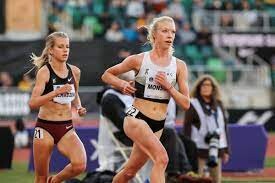
Matthew Centrowitz and Evan Jager have seen it all in running. They both graduated from high school in 2007 and made their first US teams as young guns — Jager as a 20-year-old in 2009, Centro at 21 in 2011. For much of the 2010s, they were among the very best in the world in their events, with Centro bringing home a gold medal from the 2016 Olympics and Jager a silver. Now Centro (34) and Jager (35) are the elder statesmen, trying to fend off a host of younger rivals and make one last Olympic team in Paris.
Both men will run their 2024 outdoor openers in the 1500 on Saturday (Centro did run a 3:59 indoor mile on January 27 while Jager ran the first 4k of a 5k in Boston on February 16 before dropping out). Which means it’s time for one of our favorite games: how fast (or slow) will Centro run?
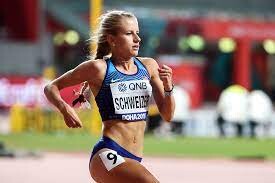
Throughout his career, Centrowitz has established himself as one of America’s greatest ever milers by delivering when it counts. He made every US team from 2011 through 2021 and won three outdoor medals as well as the 2016 World Indoor title. Yet in the latter years of his career, Centro thrown out some stinkers to begin his seasons before working his way into shape. In 2021, he opened with a 3:40 1500 on March 6 followed by a 1:50 800 on April 10 but ended the year running a 3:49 mile and making the Olympic team. Last year, he went to Australia and ran 1:56 for 800 on February 11 and 4:06 for the mile on February 23 but was running 3:36 for 1500 by May and eventually made the US final (though he only finished 10th).
So if Centro runs poorly here, it’s not cause for total panic. Heck, the fact that both he and Jager — who missed most of the 2023 campaign with a foot injury — are healthy enough to be racing is a promising sign. But the American 1500 scene is also more competitive than when Centro last made a team in 2021. Tactically, there is no better US racer than Centro, but he’s up against a group of young studs that includes three medalists from this year’s World Indoors (Yared Nuguse, Cole Hocker, Hobbs Kessler) and a trio of NCAA champions from the University of Washington (Luke Houser, Joe Waskom, Nathan Green). Nuguse is the oldest of that group at 24 — a full decade younger than Centro. Centrowitz is facing an uphill battle to make Olympic team #4 but if he can run 3:36 or 3:37 here and stay healthy for the next three months, he could still have a shot.
As far as the man most likely to win here, Sweden’s Samuel Pihlström ran 3:35 in February and just finished 8th at World Indoors.
Women’s 10,000 (11:58 p.m. ET): Alicia Monson tries to become the first US woman under 30:00 as Karissa Schweizer returns.
Unlike almost every other athlete in this meet, Alicia Monson already has the Olympic standard thanks to the 30:03 American record she ran here last year. So why is she back for another crack?
Monson laid it all out in an interview with LetsRun.com back in December:
Basically, it was just what can we do that would make me feel the most ready for the Olympics? And I feel like that’s running a sub-30:00 10k. I guess the plan would be to break the American record again, but really it’s how fast can I run to feel the most prepared? Because obviously I’m running against people who can run very fast and [I need to] be prepared to run at a pace that feels easy to them and then kick off of it.
Monson was still with the leaders at the bell at last year’s World Championships and her 5th-place finish was the best of her career in a global final. But she finished nearly four seconds out of the medals and the competition will be fierce in Paris. The last three global 10k champions — Sifan Hassan (29:06 pb), Letesenbet Gidey (29:01 pb), and Gudaf Tsegay (29:29 pb) — occupy three of the top four spots on the all-time 10,000m list. The slowest of them, Tsegay, still has a pb 34 seconds faster than Monson’s.
(03/15/24) Views: 111Jonathan Gault
Ethiopia's Dinkalem Ayele and Kenya's Brigid Kosgei became victorious at the 33rd Lisbon Half Marathon
After covering the race's more than 21 km in 01:00.36 hours, Dinkalem Ayele emerged victorious, surpassing German competitor Amanal Petros by 20 seconds and Kenyan Dominic Kiptarus by three seconds.
Brigid Kosgei finished the women's race alone in 1:05.51 hours, crossing the finish line in front of the Belém Cultural Center in the Belém neighborhood. Ethiopia's Bosena Mulatie, who placed second with a timing of 1:09.00 hours, and Tigist Menigstu, who finished 14 seconds ahead of her country mate, completed the women's podium.
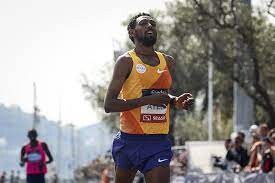
In front of her two kids, Kosgei who seemed to be warming up for next month’s women showdown at the London Marathon was in ecstasy and confirmed her status, sealing the win before the 10km mark to finish with a comfortable on the streets of Lisbon for the World Athletics Elite Label road race.
“This was preparations for London Marathon next month. I am happy and I appreciate what I have ran today. I am also grateful to the organizers for a good race,” Kosgei said.
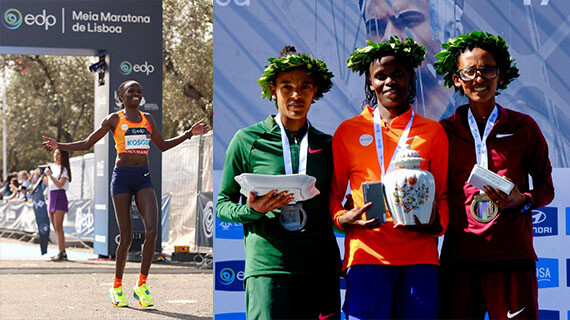
The 2024 Lisbon Half Marathon included competitors from several nations, and over 30,000 people enrolled for the weekend's events, 10,000 of which were foreigners.
(03/19/24) Views: 109Rory Mc Ginn


